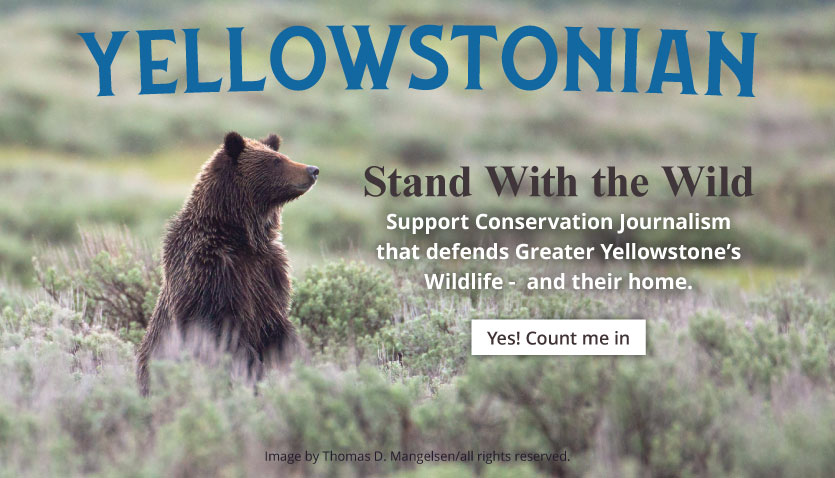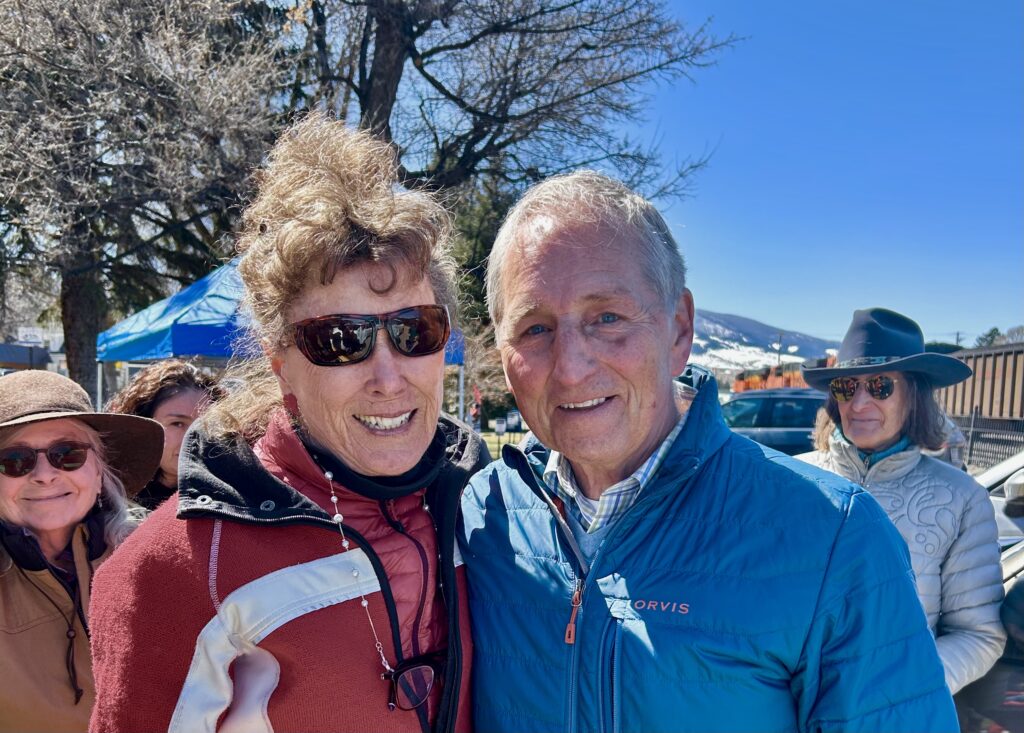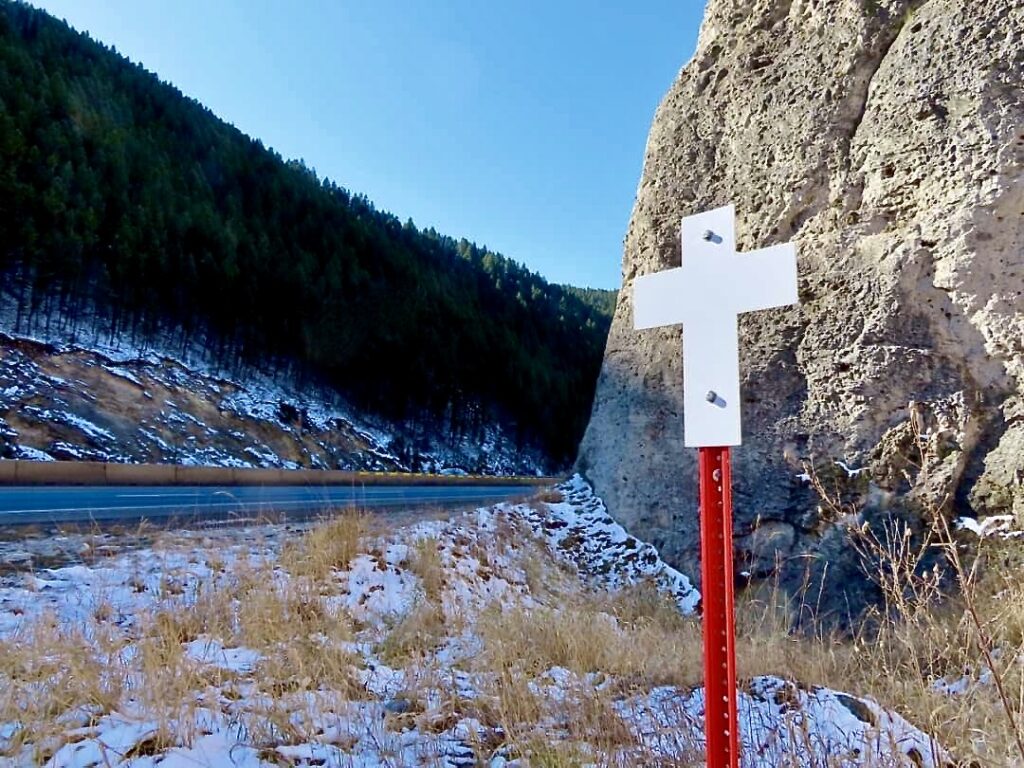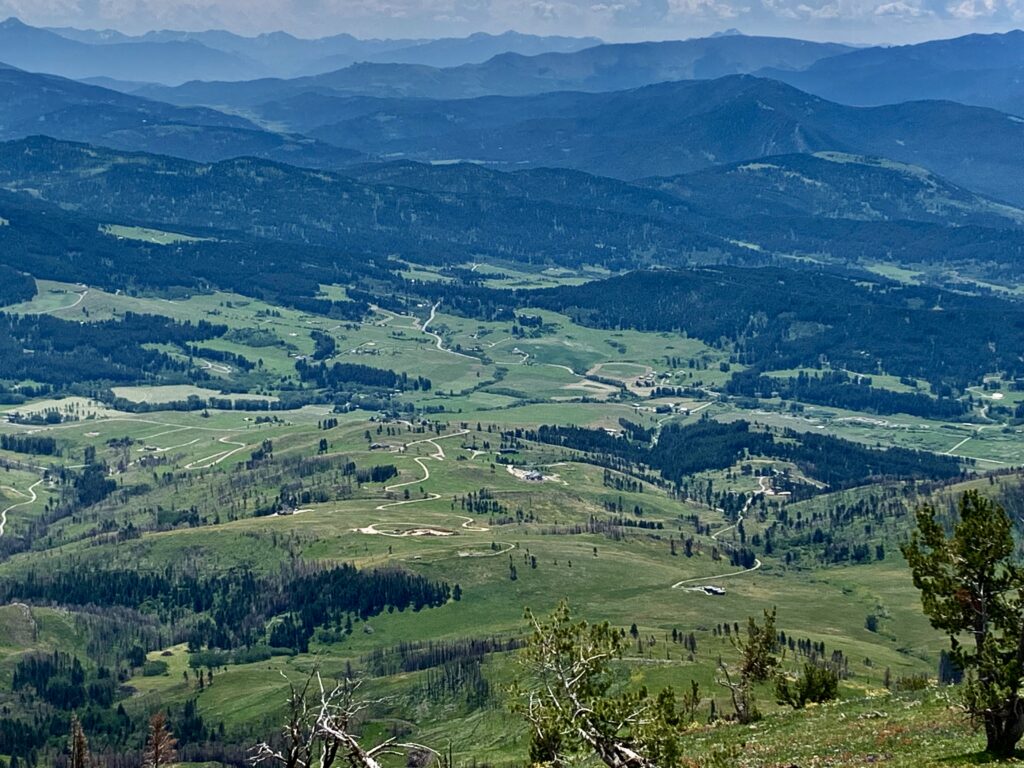EDITOR’S NOTE: Jenny Fitzgerald, new executive director of the Jackson Hole Conservation Alliance, is irrepressibly modest in describing the hard-earned experience she’s gleaned pondering the difference between places that are still wild and others where the beating pulse of healthy natural ecosystems has grown feint.
Self-deprecating, she says, “I’m just a redneck treehugger who likes wild things in wild places,” she says.
The Jackson Hole Conservation Alliance has special distinction. It is the oldest NGO in Greater Yellowstone that has continuously operated on twin fronts, trying simultaneously to create better public policy for both public and private land. In fact the intersection of that terrain—understanding its seamlessness— is the very essence of ecosystem thinking. Yet so many of the larger organizations, who say they’re only focused on public lands, are absent from entering the fray of planning and zoning issues. Arguably, sprawl is the most pressing, amorphous existential threat to public lands Fitzgerald and crew want to lead the way in educating the public about why it matters if Greater Yellowstone’s ecological integrity is to persist.
Soon, Yellowstonian will feature an interview with Fitzgerald and on August 20 Yellowstonian founder Todd Wilkinson has been invited to deliver a few remarks at the Alliance’s annual summer picnic at the Jackson Hole Center for the Arts. “The Alliance was, and remains, one of my favorite local NGOs in Greater Yellowstone,” he says. “It was the first conservation group I became acquainted with when I moved to the region as a reporter in the 1980s. Exceptional people have worked for it and done important work and Jenny Fitzgerald is now poised to do the same. There are a number of women who guiding conservation there into a new era.
The Teton Raptor Center is led by Amy Brennan McCarthy, Renee Seidler and the Jackson Hole Wildlife Foundation, Leslie Mattson at the Grand Teton National Park Foundation, Penny Maldonado at the Cougar Fund, Lisa Robertson at Wyoming Untrapped, Kristin Combs at Wyoming Wildlife Advocates, Peyton Griffith, interim head of the Northern Rockies Conservation Cooperative, Liz Storer at the George B. Storer Foundation, Laurie Andrews at the Jackson Hole Community Foundation, Nicole Korfanta at the Knobloch Family Foundation, Sharon Mader who is the senior program manager for the Jackson Hole office of the National Parks Conservation Association, Kim Trotter at Teton Regional Land Trust, Bonnie Self at the Community Foundation of Teton Valley, Niki Richards at Valley Advocates for Responsible Development and Amy Verbeten of Friends of the Teton River in nearby Teton Valley, Idaho. Notably, women at these organizations and most others also are leaders at every staff level. In total, it’s a powerhouse.
It’s a crucial time because Jackson Hole and neighboring valleys are at a crossroads. The area’s world-renowned legacy as a hub for innovative thinking about wildlife conservation hangs in the balance as development and outdoor recreation pressures mount.
Fitzgerald first came to Jackson in 2011 and worked for Grand Teton National Park as a bear management ranger. Growing up in Ithaca, New York, she had never been west, but like many, she “fell in love with everything Jackson Hole was.” With a degree in natural resources and animal science from Cornell University, she pursued work with wildlife within Jackson and elsewhere. For many years, she studied lions as a staffer for the large cat conservation organization, Panthera, in the Gros Ventre Mountains, and in Northern Chihuahua, Mexico alongside the Mexican gray wolf reintroduction. More recently, she worked with the National Park Service in the Santa Monica Mountains outside Los Angeles. Her exposure to urban wildlife issues was an invaluable experience, and has galvanized her thinking about coexistence at a hyper scale on the edge of one of the biggest, most sprawling metropolises in the world.
We are sharing an essay Fitzgerald wrote about her approach to conservation. Enjoy.
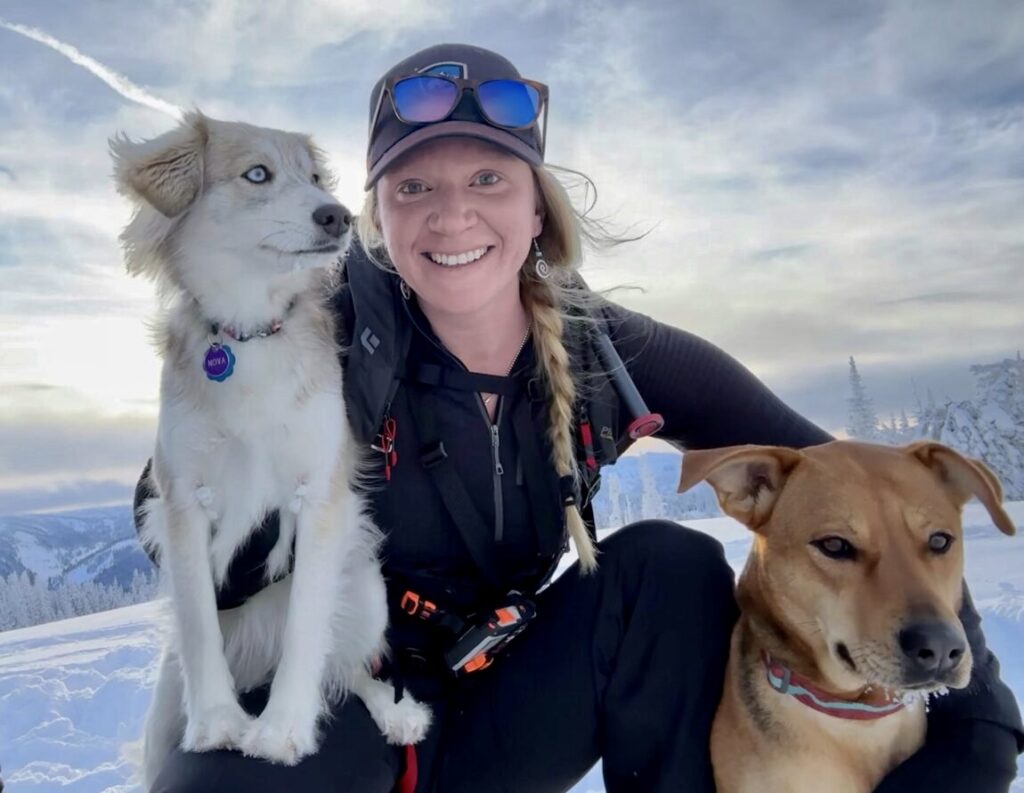
By Jenny Fitzgerald
It is my greatest honor to step in as the new executive director of the Jackson Hole Conservation Alliance. As a local who has had the privilege of calling Teton County home since my first job with Grand Teton National Park in 2011, I am humbled to be able to lead the oldest conservation organization in the valley.
My career has been centered around wildlife and naturally I landed in a community that places wildlife at the forefront of our values. While individual species and populations face their own struggles, the overarching threat to our wildlife populations as we know it—is us. A pivotal moment in my career that shifted my focus from on-the-ground research to the human/wildlife interface was triggered by this quote by Gus Speth, an environmental lawyer and advocate:
He said: “I used to think the top global environmental problems were biodiversity loss, ecosystem collapse and climate change. I thought that with 30 years of good science we could address these problems. But I was wrong. The top environmental problems are selfishness, greed and apathy, and to deal with these we need a spiritual and cultural transformation, and we scientists don’t know how to do that.”
Science is the backbone that informs our stance on all the issues, and without it we would be at a loss for the right direction. But even knowing where we need to go, without people who have the willingness, and compassion to speak up for this unique wild place, we cannot make the human level of change needed. While change is inevitable and development will continue, it is our obligation to do so responsibly.
“At the end of it, we are all just visitors here. It is a selfless act to look past our time here, and recognize we will also reap the benefits if we seek to share the ability for whoever is next to experience incredible lives in this community and ecosystem as we have.”
—Jenny Fitzgerald, new ED of the Jackson Hole Conservation Alliance
I hope you will join me in finding new ways to embrace the values of wildlife, wild places and the interconnectedness with our community. At the end of it, we are all just visitors here. It is a selfless act to look past our time here, and recognize we will also reap the benefits if we seek to share the ability for whoever is next to experience incredible lives in this community and ecosystem as we have.
I am just a couple of months into the position with a lot to learn, but I couldn’t be more excited to be working with the incredible staff and a very passionate board of directors. I welcome you to reach out if you would like to meet me, talk about our current issues in greater Jackson Hole and how you can be involved through donations, volunteering or more involvement with the organization. I look forward to meeting all of you in time. See you at our summer picnic on August 20.


